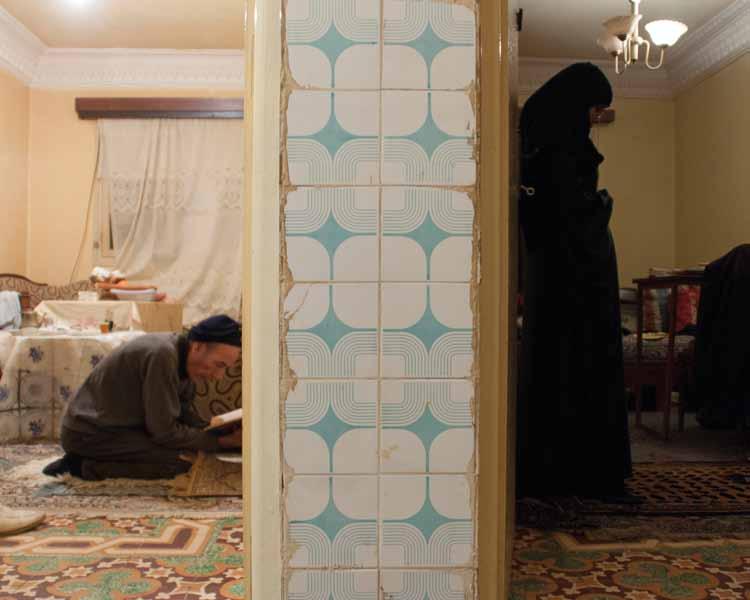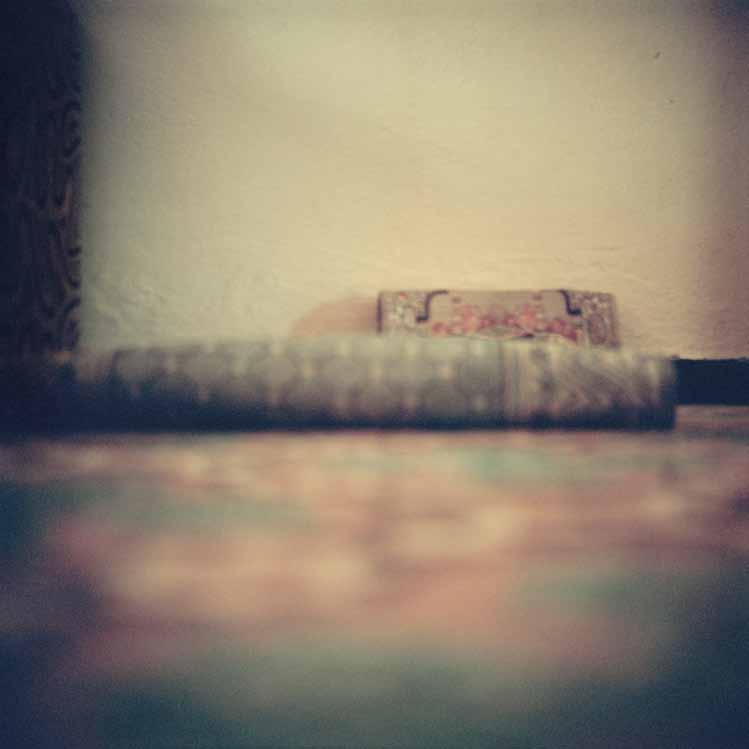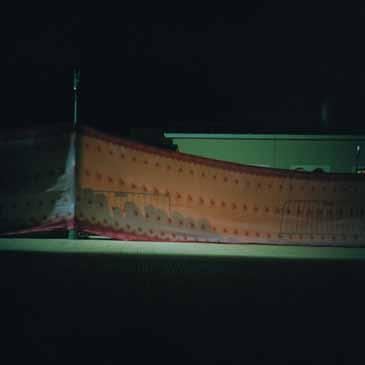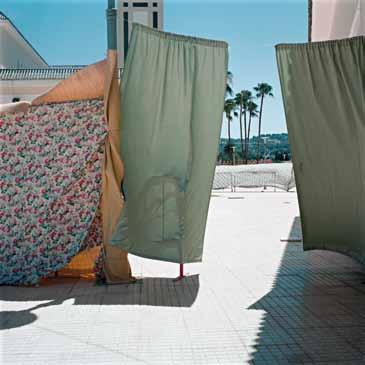
3 minute read
Btihal Remli
from Tribe 09
Btihal Remli: Inside Intimate observations, made from afar
Some readings of photographs necessitate little or no additional context. They presume that the act of looking is guided by an informed interest in the photographed topic, subject, event. This benevolent presumption, like most presumptions, falls on its own sword: the uncertainty of the premise. What if the idea used as the basis for the expectation is not true or sufficient?
Advertisement
In her work, Btihal Remli, the German-born photographer of Moroccan origin, circumvents the dangers of uncertainty with the elegance and respect of an observant, critical and pragmatic mind. Remli is unwilling to waste time on considerations that take away from the intimacy or urgency of the situation developing before the lens of her camera. Instead of treading the learned path of documentary photography, often a choreography of objectivity and didactics for the gaze of the outsider, without fear of being “vague” or “unclear” Remli is on a different path, where process prioritizes the intricacies of her stories— be they about dark magic, identity, religion or gender.
Remli’s storytelling can be easily perceived as a negation of the documentary process. Perhaps it is, but, in dwelling on that one may ignore its more substantial and defining quality: its commitment to truth. Remli intends the viewer of her work to know that despite her proximity to the subject, she will remain the outsider that she, as a storyteller, inherently is. Remli’s position outside the parameters of the narrative not only creates the rhythm of the photographic sequence but also sets its genre. Take her series Inside in which she documents how salaat (prayer) transformation every day and secular places that facilitate trade, transport, and family life into religious spaces. Although the title of the series justifies the expectation of a photographer embedded within her subjects, photographing from the prayer carpet beneath those who bow and prostrate to God in the direction of the Kaaba at Mecca. But this is not the case. Inside, actually, is a look from the outside in on a ritual that, although performative, is not a performance. To consciously perform prayer in front of a camera is antithetical to its raison d’etre: transcendence into the realm of the otherworldly and holly.
So, if one is to document it without explicit permission, one ought to be like Remli: stand behind the curtain, point the camera from the opening between walls or in passing, and without flash. The frame that comes out may not be clear. It may have motion in it as the body may be caught by a double-exposure-like effect. What is seen won’t be explicated, but it also won’t be mystified.
What one sees in Remli’s Inside transcends the particulars of the topic. It is a material artifact of immateriality. Unlike reckless and nonchalant voyeurism, Remli’s work creates a solid ground between two antonymous realms: the secular and sacral. The in-between is not a stand-in for contradiction, but a stance for reflection and inquiry. It is not a way out of a conundrum but a way in.
Mohammeds Carpet-14 from the series Inside (2014) Morocco, C-Print, 60 x 60 cm

Clockwise: Throne Verse #2, Welcome, Throne Verse #1 and Time & Space from the series Inside
(2014) Morocco, C-Print, 100 x 100 cm




Clockwise: The Veil #2, the Veil #6, the Veil #5 and the Opening from the series
Inside (2014) Morocco, C-Print, 100 x 100 cm




Clockwise: the Prayer #2, the Prayer #4, the Prayer #1 and the Veil #2 from the series
Inside (2014) Morocco, C-Print, 100 x 100 cm














